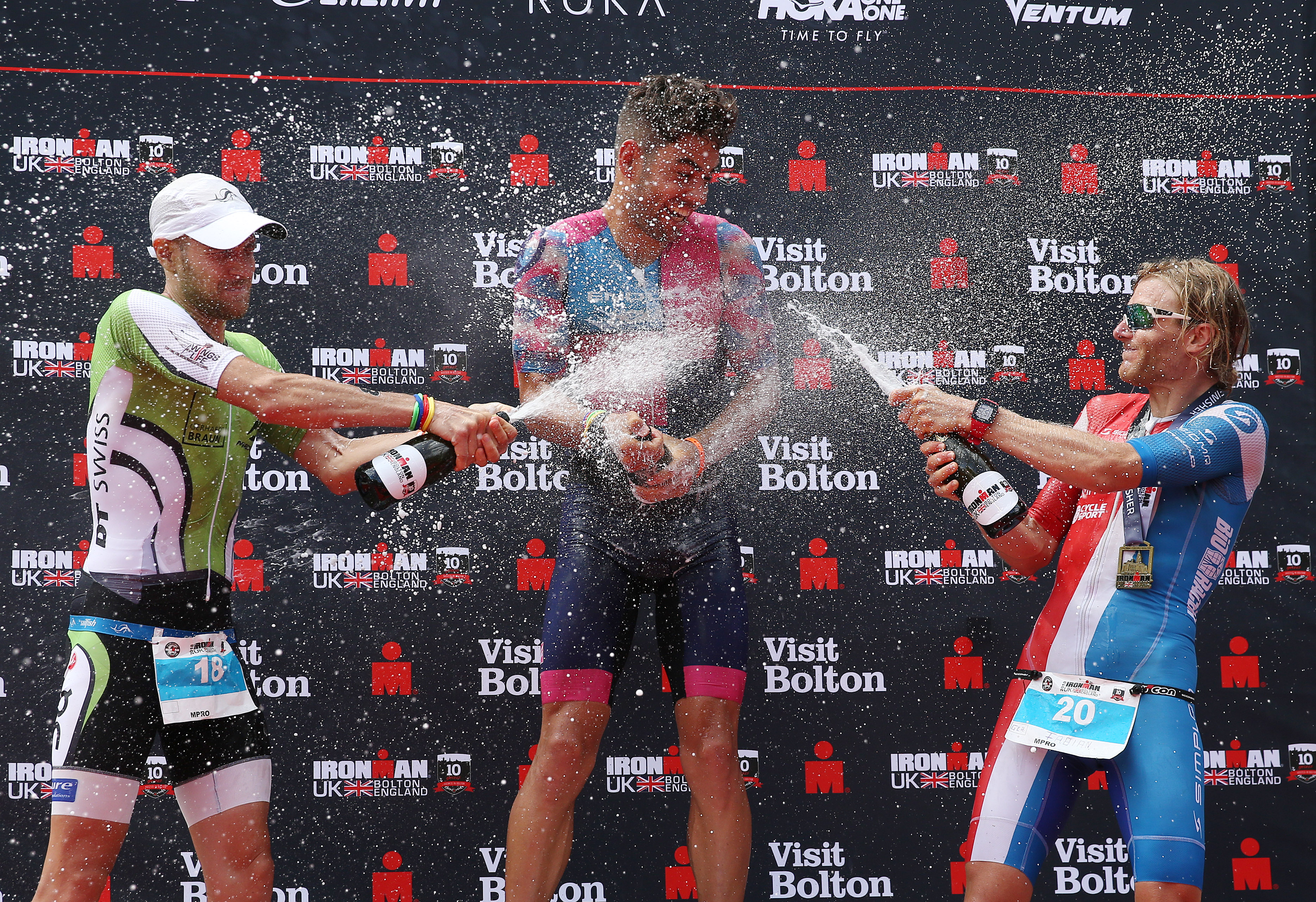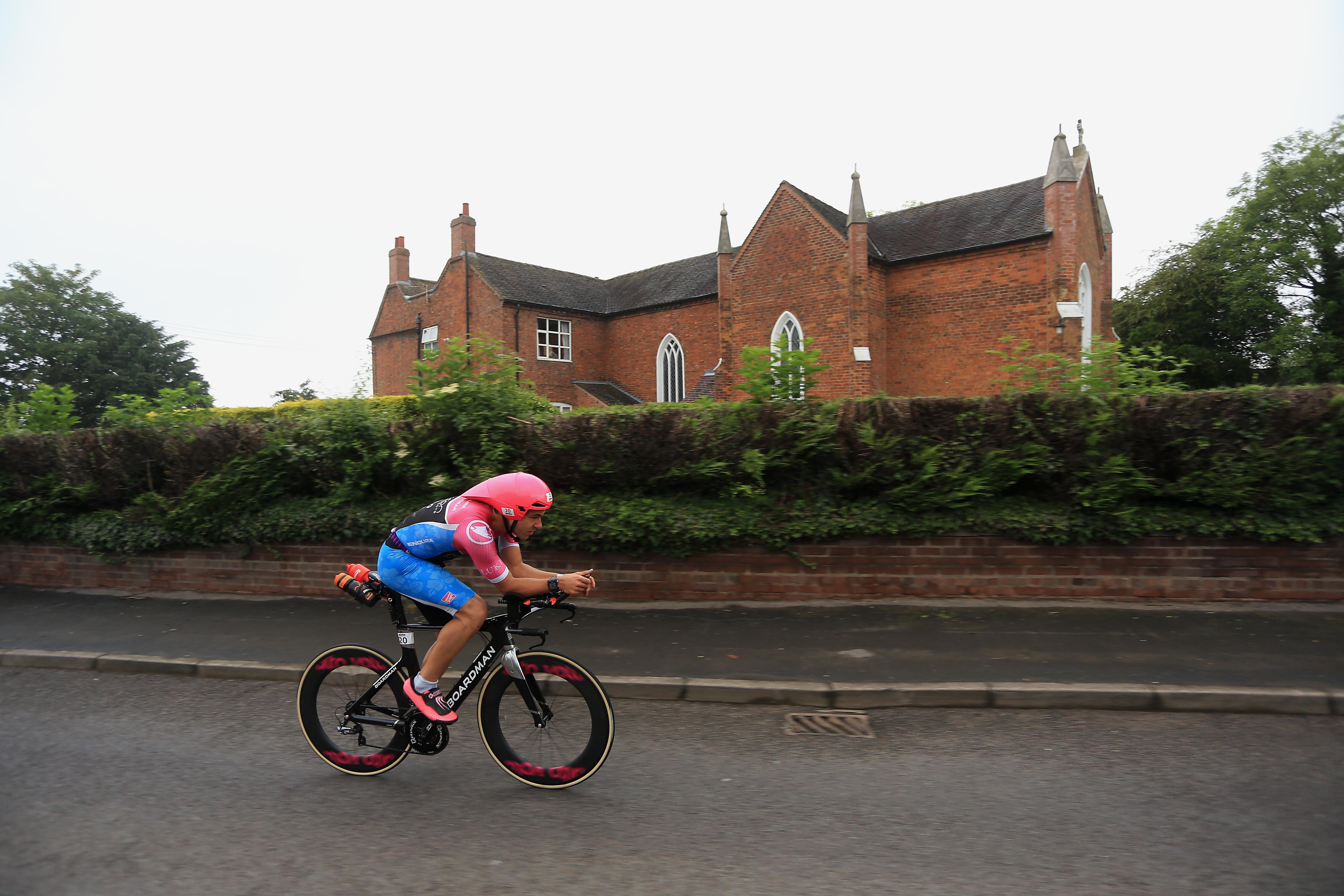Interview: Joe Skipper on his top training tips and 2022 plans
British triathlete Joe Skipper talks to Tim Heming on training strategy, nutrition advice and his competition

Joe Skipper says he still can’t find a coach that’ll “put up with me”, but he’s flying the union flag when it comes to British men in long-course triathlon.
The only male Brit ranked inside the Professional Triathletes Organisation top 40 – mixing with the big hitters at No. 7 at time of print (No. 12 now, after missing St George) – a unique approach to training includes “just for fun” escapades to make quads shudder.
There’s a serious athlete here, too. Skipper has secured iron-distance victories in each of the past five years – no mean feat through a pandemic – and alongside his racing schedule for 2022, he has a special project planned for the month after Kona, and something even more special planned for the start of July – marriage to his long-term fiancée Laura.
220: There aren’t too many pros making Norwich their training base, but you seem to revel there?

Joe Skipper: The facilities are really underrated. We’ve got two running tracks and loads of pools. Everywhere I’ve been for training camps it’s been harder to get the swimming in than back home. When my endless pool’s set up, I’ll be even better placed.
But you did spend three weeks in Girona in February, where
[3 x Ironman world champion]
Jan Frodeno lives and trains. Could you see why it’s become a tri mecca?
Yeah, because the roads are quiet. It’s like England in terms of scenery, but warmer. The quality of the food at Jan Frodeno’s café is awesome, too. If you only head for Lanzarote, you’re not going to get a decent coffee. The best place I’ve trained is Font Romeu, then Girona.
What’s the best piece of advice you give yourself – and would give to other triathletes?
Consistency. It’s what you hear everyone say, but it’s true. Do what you can handle and recover from each week. Then do it over and over again.
I train with amateur athletes who’ll join me for 2-3 weeks and improve quite a bit, but then stuff gets in the way, such as work or going out at the weekend. That’s all well and good, but you can’t get a head-start in a race because you haven’t trained as much.
What’s the rest of your season looking like after the first Ironman World Championship in St George?

I’m going to do Ironman France, then I’m getting married, and I’d like to do the PTO Tour race in Dallas ahead of Kona. If I qualify for the Collins Cup it’ll be fantastic, too.
I think if a lot of people race St George, the PTO events and the Collins Cup, they’ll be getting to Kona knackered. After Kona I want to do something a bit different.
Such as…?
I want to break the 50-mile ultrarunning world record. I’m talking to [shoe sponsor] Hoka about trying to set something up instead of racing another Ironman.
I’m thinking 3-4 weeks after Kona because the fitness is still there. If I don’t do it when I’m a pro, I won’t have a chance when I stop The current record is 4:50hrs.
In December, I ran 50km and managed 2:57hrs and it didn’t feel too bad – perhaps how I’d feel at 30-35km in an Ironman. It was 6 out of 10 effort and I could’ve carried on at the pace easily for another 10 miles. And I wasn’t in the shape I’d be in for Kona.
The record works out at 5:47 per mile for 50 miles, so I’d have to run 5-6secs per mile slower for another 18 miles [to break the 50-mile world record]. My course was my house in Norwich to mum and dad’s in Lowestoft and undulating. So, if I had a fast course with some pacemakers…
The Pho3nix Sub 7/Sub 8 project is coming up at the start of June. Alistair Brownlee and Kristian Blummenfelt will both attempt to break 7hrs for the iron distance. Could you do the same?
Yes, I think so. But it’ll be harder than people think. I did a bit of pacing with Alistair and it’s not easy to sit in [on the bike] on the course we tried. It all comes down to the bike.
If the bike is around 3:40– 3:45hrs [for 112miles] and they save enough energy, I think it’s do-able, but it’ll be fascinating to see. But it’s not just about going Sub-7 but beating the other team.
Many are favouring the Norwegian [Kristian Blummenfelt], but I think Alistair has got this. He’s gunning for it, he’s in good form, and I think Blummenfelt will have his work cut out. Alistair’s going to surprise people.
You recently completed a 136-mile bike ride, with over 14,000ft of ascent and then a 10km run at an average 6min/mile pace. Why?
It was the classic route around Girona – the four biggest climbs in one ride. It was one of the worst weather days, but an epic day out. We started early and my dad was driving a support car.
It was mainly just fun, but the runoff-the-bike definitely gives a lot of confidence. When we got to the last climb it was full pelt, whatever’s left in the tank – and then run off the bike just to see if it’s possible.
A lot of people are worried about pushing the bike too hard in Ironman because they’ll blow up. But if I could run off this, I could run off anything.
You’re notorious for training hard. Do you believe the slow miles are junk and a waste of time?

It depends how slow. Riding at 50% of FTP is total garbage but a steady pace is definitely important, I don’t want to go hard all the time.
Do you get the credit you deserve for your performances?
I’m not too fussed about getting credit. Certain people get mentioned all the time and don’t perform; others don’t get mentioned at all. I quite like it when I’m touted not to do anything – it makes me feel like I’ve something to prove. You don’t have any more chance of winning because people pick you.
You’re currently the only British male in the top 40 of the PTO rankings. Why do you think that is?
Alistair Brownlee will definitely be in the top 40 if he doesn’t get injured. People like George Goodwin should be, but he doesn’t race enough.
Tom Davis could be, but he races too much. George needs to put himself on more start-lines – especially as he’s young so can recover quickly. You can’t just target 2-3 races a year as a new pro. You can if you’re Frodeno, but he’s earnt his stripes.
Are you happy with the way the rankings work – a best-of-three-races format, based on times?

I like the way it’s done. I hear people say it should just be on results, but saving yourself for another race is a luxury, and you should be sacrificing some kind of points.
But I do think something is wrong with certain races. Sam Appleton posted recently that to get 100pts in the race he won, he’d have needed to get a world record – so how is that fair?
You’ve won Ironman UK twice, including last summer. You must look forward to going back there?
I hate that race! I can’t stand it! I hate the course and the weather is terrible. I’ve won it a couple of times, but when I won it the first time I said I’m glad I’ve won because I’ll never have to do it again. In 2021, I didn’t have much choice. The prize money was decent, so I thought I’d give it a crack.
Joe on refuelling and recovery
Competing in multiple Ironmans every year, Joe tends to bounce back quickly from races and training. He shares his thoughts on recovery and refuelling…
- Accept reality. I recover quicker from an Ironman because of the amount of training I’m doing. If I train 25hrs a week and the race takes 8hrs it’s only 30% of the volume. An age-grouper could well be over 100% of their weekly volume during the event.
- Get a good night’s sleep. I don’t go to bed too early as Laura works as a doctor and sometimes won’t finish work until after 9pm, so we’re generally not going to bed until 11:30pm. But I still need to get 9hrs.
- Eat well after training. I’m not anal about it. I eat a well-balanced diet, just fruit and veg and normal food. If you have 4-5 beers and a load of fast food, you’ll feel like crap!
- Eat enough for your training volume. I eat absolutely loads – and don’t weigh it.
- Eat food for your gut. It’s really important: Kefir, kombucha, sauerkraut and kimchi.
- Be sensible. As an age-grouper, it’s better to sacrifice early-morning sessions if you’re feeling tired because there’s no point putting yourself in a hole.




